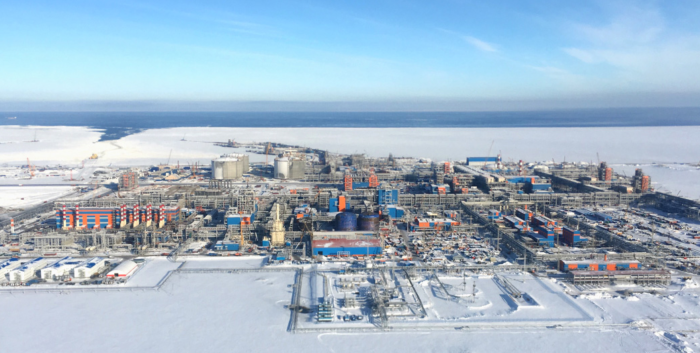On December 4, the world’s first icebreaker tanker which will, mainly, transport condensate oil was, officially, launched. ‘Boris Sokolov’, 44,500 dwt, was built by Guangzhou Shipyard for a major Greek shipping company.
The vessel was designed according to the Russian Ice Society’s highest ice zone level, Arc 7, and can sail and supply condensate throughout the year without an icebreaker pilot.
It will, mainly, be used for the $27 billion Yamal LNG project in Russia’s Arctic. It is understood that Yamal LNG project and the Greek shipping company Dynacom, the owner of the vessel, signed a long-term chartering agreement for this condensate tanker.
The vessel has a unique ability to operate in harsh Arctic winter even in temperatures below -50 degrees Celsius (-58 Fahrenheit). She is, also, equipped with pod propulsion that allows two-way icebreaking capability, according to local media citing deputy general manager of the shipyard.
This pod propeller can be rotated horizontally within 360° to allow the vessel to move forward or backward. Therefore, the ship can break the ice in two ways and maintain a speed of more than two knots, which is unique among the ice-boats currently operating in the world.
[smlsubform prepend=”GET THE SAFETY4SEA IN YOUR INBOX!” showname=false emailtxt=”” emailholder=”Enter your email address” showsubmit=true submittxt=”Submit” jsthanks=false thankyou=”Thank you for subscribing to our mailing list”]
The Yamal project is located in the Arctic Circle and it is expected to drive the development of Russia’s energy industry. Furthermore, the project is expected to increase China’s supply of cleaner energy as it reduces its reliance on coal.
On the contrary, the world’s first icebreaker oil condensate tanker, ‘Boris Sokolov’, follows the world’s first LNG icebreaker, ‘Christophe de Margerie’ which was built in South Korea by Daewoo Shipbuilding and serves the Yamal LNG production terminal, too.
Natural Gas Liquids(NGL) include propane, butane, isobutane, ethane, ethene, propene, isobutene, butadiene, pentane, pentene and pentanes plus, are, usually, referred to as Condensate which, sometimes, can lead to name misunderstanding of LPG, LNG and NGL.






























































